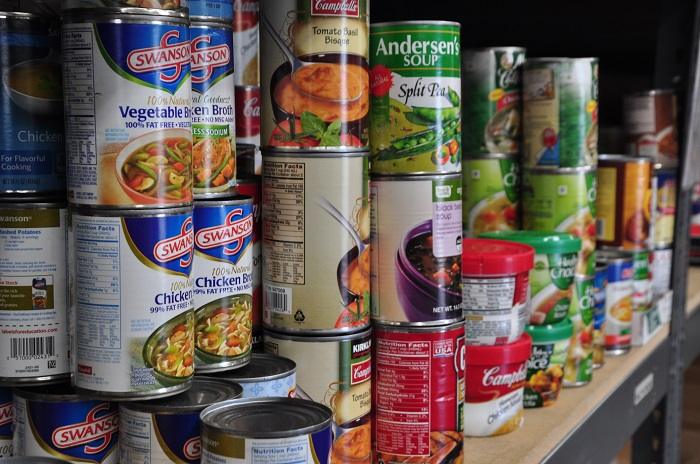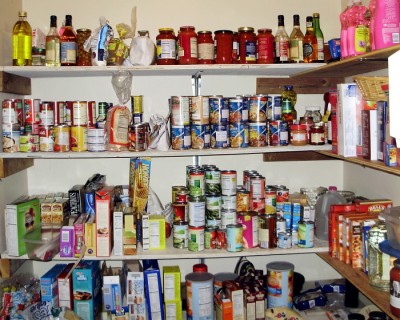“You’re like a closet prepper!” an associate exclaimed to me during a recent conversation. After considering her words awhile, I’m ready to admit that, yes, I am a closet prepper.
Those of us who homestead do not necessarily consider ourselves to be preparedness experts, but the natural result of living on a functional homestead means we are more prepared to meet unexpected challenges and crises than a majority of our neighbors. Homesteaders in ages past were the original preparedness experts and following their example, modern-day homesteaders are some of the most prepared.
But first, what is a prepper? A prepper is one who has made preparations to provide for his or her own immediate needs during a crisis situation – whether that be a natural disaster, man-made crisis or a job loss. Clean water, nourishing foods and a secure shelter – those are all a part of the prepper’s plan. Most plans include stockpiling. Preppers also gather other essential goods, such as medicines, fuel for a variety of heat sources and physical money.
The Quickest And Easiest Way To Store A Month’s Worth Of Emergency Food!
Recent terrorist attacks remind us that we are not immune and that disaster could strike at any time and without any warning. The day may come when we face a tragedy that includes the loss of a major portion of the power grid, our transportation system or even our food supplies. We are certainly not exempt from the effects of an ever-turbulent weather forecast. One major volcano, such as happened during the summer of 1816, would disrupt much of the food supply and cause unrest in the general population. Prepping is simply common sense.
So, what type of prepper are you?
1. The closet prepper
Bucking up against those who mock at the preppers, closet preppers quietly begin implementing a plan to prepare themselves for handling a crisis. A closet prepper may have a small stockpile of six weeks to three months’ worth of food stored in portable containers under the bed, or in an out-of-the-way closet, or even stored off-site. Maybe they have a small flock of chickens for fun or for eggs. A few patio containers may contain a handful of herbs grown for use in making herbal teas or poultices. The closet prepper also will find ways to unobtrusively integrate preparedness standards into the landscape, such as decorative barrels for water collection.
2. The backyard prepper
For a majority of people, the backyard prepper is the safe middle ground between ignoring the real need for emergency preparedness and the extreme survivalists shown on reality television shows. Backyard preppers may have a nice stockpile of food, often six months to one year’s worth, in addition to growing a garden or raising poultry for meat and eggs. They also may invest in alternative energy sources, such as solar or wind.
The World’s Healthiest Survival Food — And It Stores For YEARS and YEARS!
Both potable and non-potable water collection and filtering systems may be seamlessly integrated into the home, giving the homeowners access to clean water no matter the circumstance. For some, this level of preparedness comes naturally through daily living; however, many of today’s young adults are unaccustomed to this way of living and think that the transition to a more self-sufficient lifestyle is wholly unnecessary.
3. The bunker prepper
Many of us know one person who is forever speaking about how no one is going to make it when the next catastrophe strikes. Although this attitude is not always held by bunker prepper, this level of detailed preparation does require a commitment of time and resources that is sure to stand out in the crowd of closet and backyard preppers. The bunker prepper not only has a fully stocked pantry, including medicines, physical money and other items of value for bartering with, but even may store this stockpile in various locations to ensure availability. If food becomes scarce, the bunker prepper has field guides to refer to and has also foraging knowledge that allows him or her to glean edibles from the surrounding areas. An alternate location for sheltering off the grid is usually secured for this level of preparedness. This location may have easy access to water and forgeable plant life, while being protected from outside intrusions.
No matter what type of prepper you most identify with, each one has recognized the great need to prepare for whatever we may face tomorrow. Planning for emergencies, whether natural or national, is the best course of action for any one person to take.
What type are you? What would you add to this story? Share your thoughts in the section below:
Discover The Secret To Saving Thousands At The Grocery Store. Read More Here.
 Off The Grid News Better Ideas For Off The Grid Living
Off The Grid News Better Ideas For Off The Grid Living





